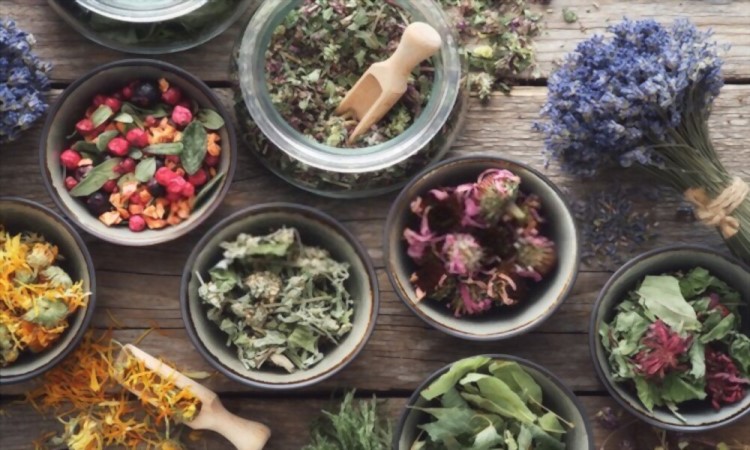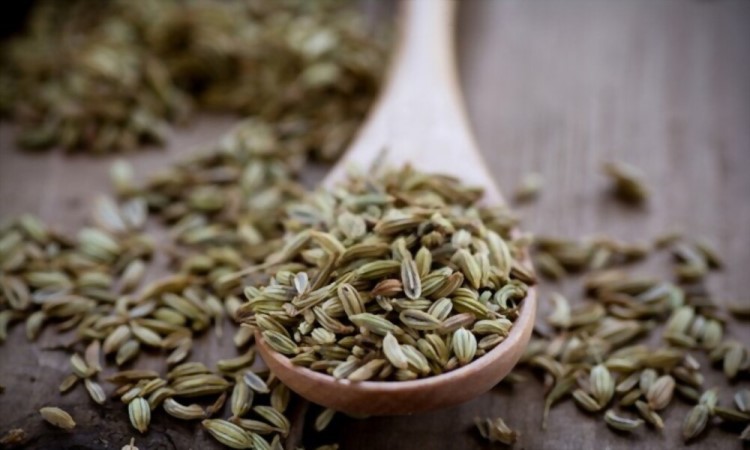Many nursing mothers want to know, “Can I take herbs?”. Different herbs have been used for centuries to treat everything from insomnia and the common cold to bleeding and depression. Herbal remedies were commonly prescribed to new mothers during the confinement period to aid in their recovery. These herbs can be consumed by anyone without worrying about serious side effects. It’s important to remember that not all herbs are safe and breastfeeding mothers shouldn’t take certain herbs. Some herbs have been shown to reduce the quantity and quality of breast milk. Some herbs, like those rich in alkaloids, can enter the breast milk and have an adverse effect on a nursing infant. This blog gives you a list of herbs to avoid while breastfeeding.
Herbs To Avoid While Breastfeeding
A number of herbal supplements are available that are all-natural and provide numerous health benefits (especially when compared to prescription medications), but remember that some herbs aren’t safe for you or your newborn during this time, and some herbs reduce breast milk production. In either case, you should stay away from them if you want your baby to get the best start.
Herbs that can potentially reduce breast milk supply
While nursing, it’s best to avoid taking any of the following herbs or other natural remedies in large doses, as doing so has been linked to a drop in milk production. While the amounts of these herbs typically used in cooking are probably safe, higher therapeutic doses could be problematic.
Here are some herbs that can potentially decrease breast milk production1
- Sage
- Peppermint
- Oregano
- Parsley (in large amounts)
- Spearmint
- Thyme
- Rosemary
Related Reading: 21 Breastfeeding Tips For First Time Mothers
Herbs that can potentially harm nursing mothers or babies

We’ve compiled a list of herbs to avoid while breastfeeding because of potential risks to the mother and infant. Coughs, colds, and other illnesses can often be treated at home with one or many of these herbs. As a result of their ability to pass into breast milk, the following herbs should be avoided while nursing.
The herbs to avoid while breastfeeding is2:
- Alder buckthorn: Usually used for constipation. The chemicals can get into breast milk. It is recommended that breastfeeding mothers refrain from using buckthorn products due to the risk of loose stools in their infants3
- Alkanet: Alkanetroot has been used for diarrhea and gastric ulcers. However, it contains pyrrolizidine alkaloids that can get into breast milk4
- Basil: Basil is used for a variety of digestive issues, including flatulence, nausea, and vomiting. Basil is likely safe for breastfeeding women in food amounts. But larger medicinal amounts are possibly unsafe. Basil contains a toxic chemical, estragole5
- Bearberry: Used in treating UTIs. The herb’s active constituents can enter breast milk. The safety score of this herb is 5. This score indicates that bearberry may cause serious adverse effects in a nursing infant6. Hydroquinone, one of the active components, in this herb may be toxic to the liver and may also irritate the uterus when taken in large quantities. Its diuretic effect contributes to the reduction in breast milk production
- Black cohosh: It is a medicinal herb whose root is commonly used to treat estrogen-related disorders. The baby could experience gastrointestinal irritation if the irritant gets into breast milk. There is some evidence that black cohosh can have a significant impact on a nursing mother’s ability to produce milk7
- Bladderwrack: This is a medicinal herb used to treat iodine deficiency, obesity, joint pain, gastrointestinal issues, urinary tract infections, and thyroid dysfunction. High levels of iodine and possible heavy metal contamination8 make it unsafe during breastfeeding.
- Borage: Used in treating rheumatoid arthritis and improving the function of the lungs. Hepatotoxic pyrrolizidine alkaloids, that can potentially cause serious liver disease is excreted in breast milk9
- Cascara sagrada: This herb contains chemicals that stimulate the bowels and have a laxative effect; therefore, it is used to treat constipation. Maternal cascara intake might cause loose stools in some breastfed infants and should be avoided10
- Kava kava: Among herbalists, kava kava is widely used to treat PMS-related anxiety and sleeplessness11. The safety score of kava kava is 7, which indicates that usage of kava kava may cause toxic or severe side effects in breastfed babies12
- Indian Snakeroot: It is used in treating health issues like insomnia, blood pressure, joint pain, constipation, etc. However, the chemical compounds it contains can enter the breast milk and may be harmful to a nursing infant13
- Licorice root: In terms of sweetness, licorice root is 50 times sweeter than sugar, making it a perfect addition to drinks and sweets. This root is considered effective in relieving spasms and inflammations due to its medicinal properties. It is detrimental to lactating mothers because it can interfere with breastfeeding and reduce milk production.
- Madder root: Used to treat kidney stones, menstrual disorders, urinary tract disorders, wound healing, and many other conditions. It can cause potential toxicity to the infant. Also, it may redden breast milk14
- Male fern: This herb has a poisonous effect on everyone, not just nursing mothers. This is usually used to irradicate intestinal worms. This has the potential to be toxic to the breastfed baby15
- Mate leaves: Mate is a stimulant that has been used for centuries to combat both mental and physical fatigue, obesity, lower LDL, etc. Cancer-causing chemicals in yerba mate may pass into breast milk. Mate leave’s caffeine content is another issue. It may cause irritability and diarrhea in nursing babies16
- Prickly ash bark: It is used for treating menstrual cramps, joint pain, toothaches, blood circulation problems in the legs, etc. It is possible for this herb to cause colic in a nursing infant17
- Tobacco: Chewing tobacco can hinder the let-down reflex and reduce milk supply18
Not only should you avoid the herbs mentioned above, but you should also stay away from some Chinese herbs if you’re breastfeeding. Chinese herbs to avoid during breastfeeding include19
- Huanglian
- Huangbo
- Dahuang
- Fanxieye
- Kushengen
- Wuzuyu
- Luhui
Disclaimer: The above list is not by any means complete. Most herbal treatments have not been thoroughly researched, particularly in regard to lactation. It is always better to talk to your healthcare provider, a certified herbalist, or a lactation consultant before beginning any herbal supplement regimen.
Related Reading: 9 Biggest Challenges Of Breastfeeding No One Prepares You For
Alternatives That Are Worth Considering

During the first few years after giving birth, it’s crucial to know which herbs are safe to take and which ones should be avoided. Here is a short list of herbs that are safe to use after giving birth and while breastfeeding. These herbs have been shown to have positive effects on a woman’s mood, stress levels, anxiety, and depression, all while promoting a healthy milk supply.
Here are some herbs that are used as galactagogues20
- Fenugreek seeds
- Goat’s rue herb
- Anise seeds
- Galega officinalis
- Fennel seeds
- Nettle
- Marshmallow root
- Caraway seeds
- Alfalfa
Other herbs that can safely lift the mood and health of the breastfeeding woman are:
- Chamomile
- Elderberry
- Red Raspberry Leaf
- St. John’s Wort
- Motherwort
- Cramp Bark
- Lavender
- Rose Hips
- Oregon Grape Root
Related Reading: 12 Foods To Increase Breastmilk Supply In New Moms
Conclusion

There are a lot of factors to think about when settling on an herb during breastfeeding. When deciding on an herb, it’s important to take into account any preexisting conditions you may have, including asthma, allergies, autoimmune diseases, blood disorders, thyroid issues, etc. There are certain health conditions in which certain herbs should be avoided. Always seek help from a health specialist when it comes to herbs during breastfeeding.
FAQ
It depends on the amount and concentration of the herb. There is no set time frame for how long it will take for the herb to completely disappear from breast milk, but it could be anywhere from a few hours to two to three weeks.

